The Biggest Lesson Star Trek Taught Battlestar Galactica Showrunner
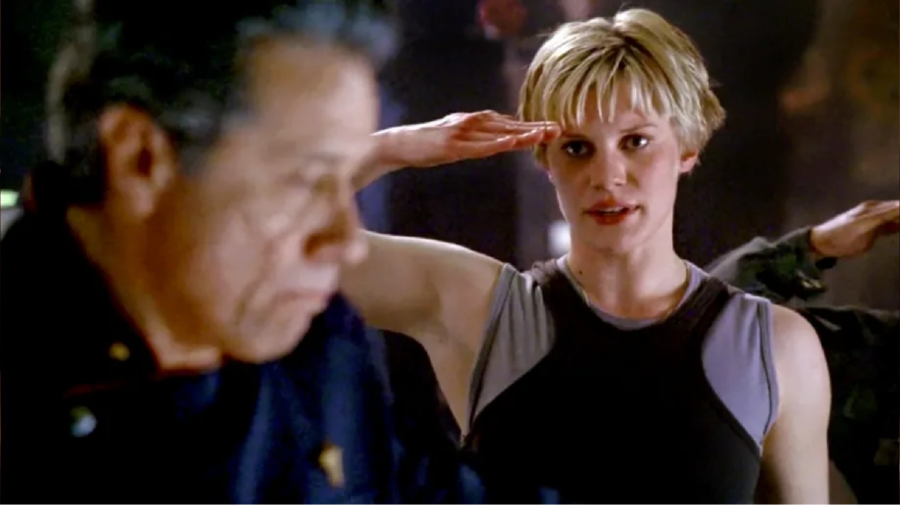
Ronald D. Moore famously worked as a writer and producer of Star Trek shows like The Next Generation and Deep Space Nine before creating the beloved Battlestar Galactica remake. Part of what made the remake so successful is that Moore had gotten a very good idea of what did and didn’t work in sci-fi after years of playing in Gene Roddenberry’s universe. The biggest lesson he learned was surprisingly simple: going back to Galactica’s first episode, he avoided Trek-style technobabble so the audience could instead focus on actual human drama.
Star Trek’s Use Of Technobabble
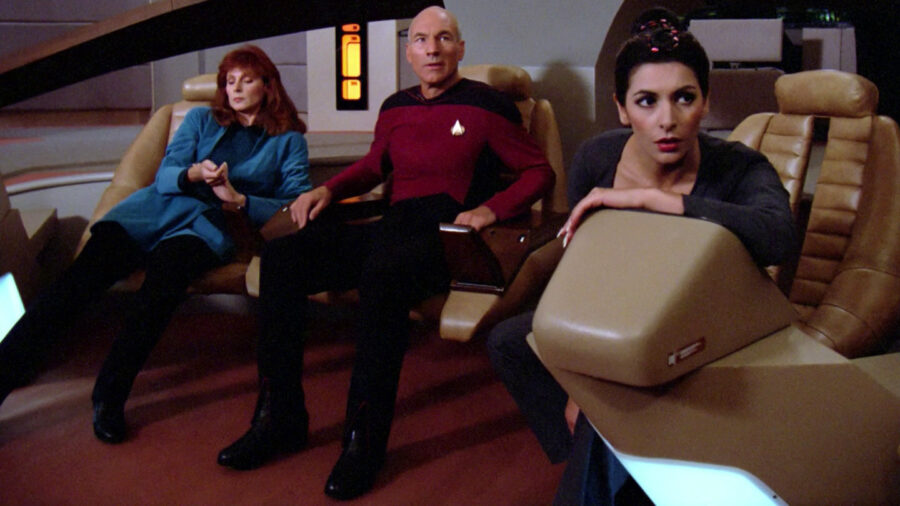
If you’re not a fan of Star Trek, you might need a refresher on what the term “technobabble” even means. In short, this is a word used by both fans and writers of the franchise to describe the highly technical dialogue explaining how futuristic science and technology work.
One of the reasons “babble” is part of the name is that this dialogue was often filler: some writers called it “Piller Filler” (named after showrunner Michael Piller) and would just write TECH in scripts, expecting the show’s science advisor to come up with some suitably scientific-sounding descriptions.
Battlestar Galactica Creator Wrote For Star Trek
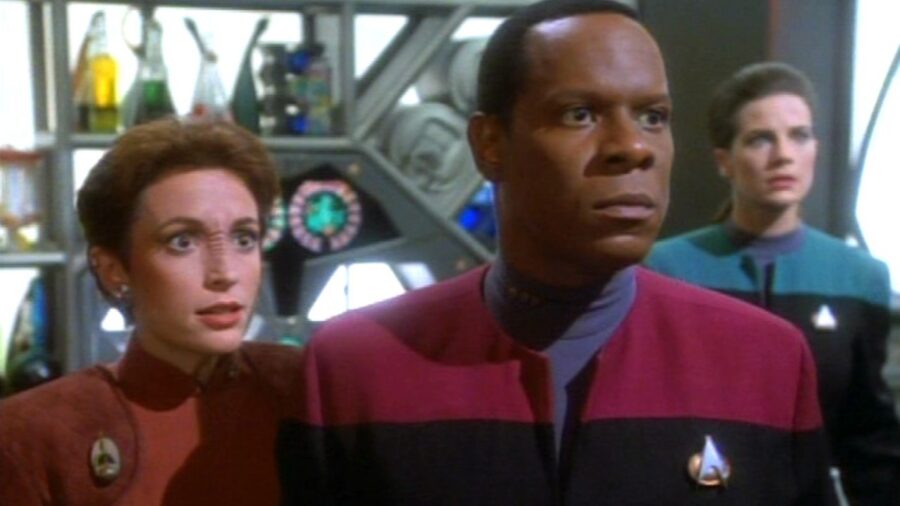
What does this have to do with Battlestar Galactica, though? Showrunner Ronald D. Moore wrote for three Star Trek shows: The Next Generation, Deep Space Nine, and (super briefly) Voyager. He was intimately acquainted with technobabble, and when it came to the first episode of his remake, he decided to keep that tech talk to a minimum.
33 Is Kept Vague

After the successful Battlestar Galactica miniseries ended on a happy note, Moore wanted to start the first episode of Season 1 by showcasing how badly humanity’s war with the Cylons was going. In this story, the ship is attacked every 33 minutes, and the episode itself is named “33.” Understandably, fans have spent years speculating what significance these numbers might have to Moore or anyone else.
However, Moore spilled the beans on a now-defunct SyFy (or SciFi.com back then) post. There, he revealed the number was arbitrary, something “just long enough for them to grab a bite to eat, jump in the shower, and maybe try to catch a catnap” before going back to battle. He then revealed that he wasn’t interested in providing an in-universe explanation because he wanted to avoid Star Trek-style technobabble.
Characters First
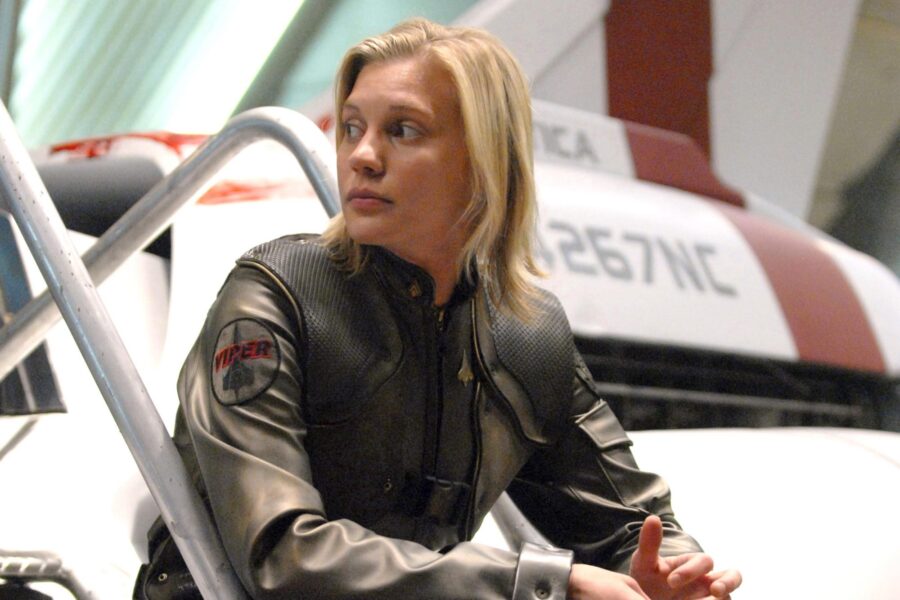
As the Battlestar Galactica showrunner said, “I mean, I suppose I could’ve come up with a sufficiently important-sounding bit of technobabble that would’ve made sense.” However, he avoided doing so because “what would that have really added to the drama?” He correctly pointed out that providing some tech-heavy explanation wouldn’t do anything to “help our understanding of Laura’s terrible moment of decision, or bring us to any greater knowledge of Dualla’s search for her missing family and friends, or yield insight into Baltar’s morally shattered psyche?”
Reaction To Leaving Star Trek: Voyager

Famously, Moore stopped working on Star Trek: Voyager because he couldn’t write the kinds of stories he was interested in telling. Most fans of each franchise see Battlestar Galactica as the type of show the prolific creator always wanted, one powered by an ongoing narrative and driven by high-stakes drama. That is abundantly clear in “33,” and while he didn’t name the rival franchise, Moore’s use of the term “technobabble” shows that he didn’t want the overly technical language typified by Star Trek to get in the way of the heartbreakingly human stories of his new show.
Technobabble Would Have Killed Battlestar Galactica
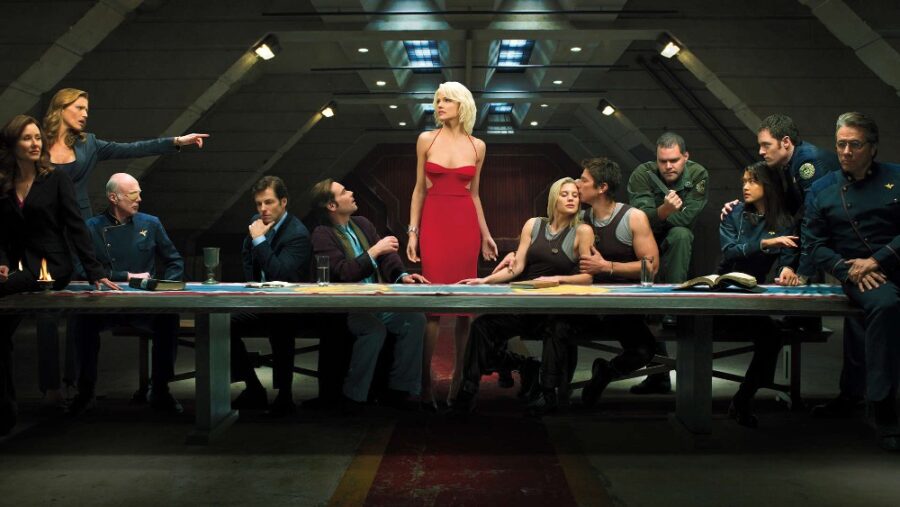
As huge fans of both Star Trek and Battlestar Galactica, we have to say that Moore has the right idea…we’ve never been sad that a Trek episode didn’t have enough technical gibberish, but we’ve often been disappointed that stories didn’t focus enough on the characters themselves. In fact, we’ll go a step further and say that Galactica was at its weakest when trying to provide tangible explanations for weird concepts like what the Six inside Baltar’s head really was.
For its occasional fumbles, though, Galactica remains one of the best shows in sci-fi history. And when it comes to Moore’s less-is-more approach to technobabble, we can only hope that future sci-fi showrunners will cry out, “so say we all!” and focus on human drama instead of technical trivia.












